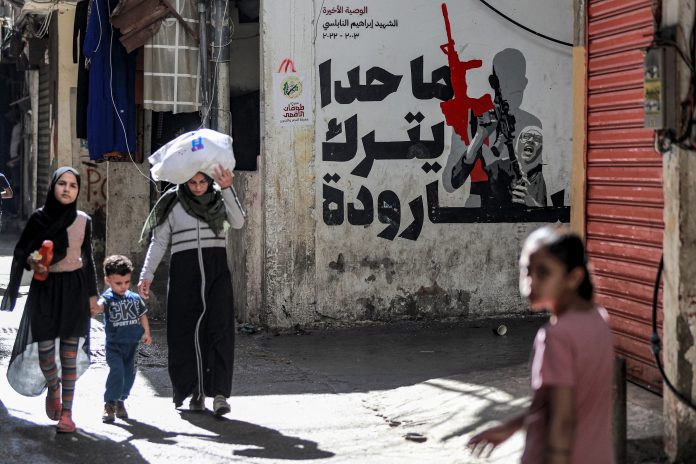The Center for Women’s Resources (CWR) has criticized the role of the Philippine government in the ongoing conflict between Israel and Palestine and its recent stance on a United Nations resolution.
The group accused the Philippine government of complicity in the Israeli-Palestinian conflict by being one of the top buyers of Israeli arms, potentially funding the ongoing crisis in the Middle East.
“Its position in the recent UN resolution calling for a humanitarian truce, where the Philippine government abstained, clearly shows where its support and interest lies – to the oppressors and repressive regimes backed by imperialist powers and colonizers who continuously violate international human rights and humanitarian laws,” CWR said in a statement.
According to the Gaza Health Ministry, there are over 8,000 Palestinians, including 3,648 children and 2,187 women, have been killed since October 7.
It alleged that the Israeli government has targeted civilians, homes, schools, hospitals, and churches with disregard for human rights and international humanitarian laws.
CRW underscored the long-standing suffering of the Palestinian people in the Gaza Strip, which has endured decades of bombings, offensives, and blockades imposed by Israel, raising concerns about their right to life and self-determination.
The group said the Philippine government, under President Duterte, has maintained a close military alliance with Israel and purchased approximately P15 billion worth of arms from Israel since 2018.
“The Marcos Jr. administration is no different from the Duterte administration in playing a crucial role in supporting Israel’s genocide in Palestine,” the statement read.
CWR also raised concerns about the safety of 30,000 Filipinos living in Israel and 100 in the Gaza Strip, given the Philippines’ expressed support for Israel’s actions in the Gaza Strip.
The group said the Philippines’ support to Israel “further legitimizes Israel’s impunity and violence inflicted not only to the Palestinian people but also endangering the lives of Filipino migrant workers”.









